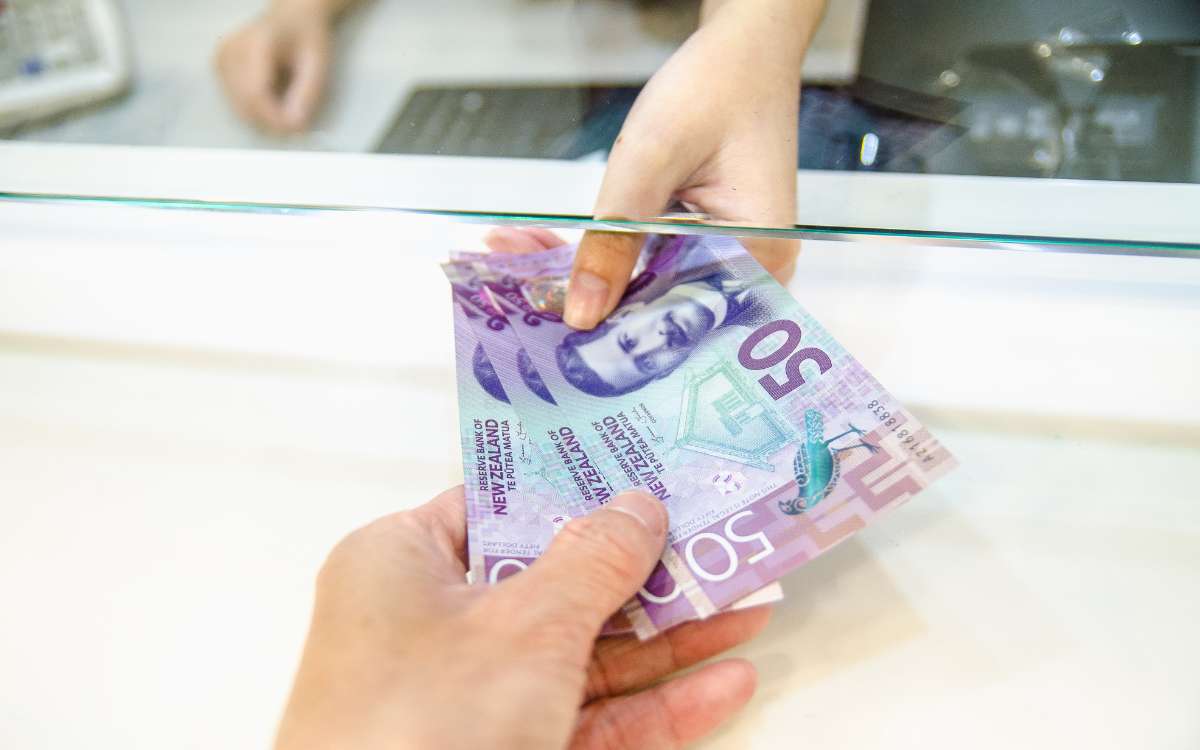Becoming debt-free is a goal for many of us.
And let me tell you, there is no feeling like making that final payment on your credit card, car loan or even your mortgage (that event deserves a party!).

10 Debt-Free Habits to Adopt
No matter what level of debt you’re tackling, there are 10 simple habits you need to succeed in eliminating your debt.
1. Create a Budget
You cannot become debt-free without a budget.
If the B-word scares you, try to think of it as a spending plan.
That’s all it really is – a plan for where your money will go so that you meet all your payments and other obligations, including debt repayments.
There are many different ways to budget, including the 50/30/20 budget where you work out the percentages of income you can spend in each category; the zero-based budget, where you make every single dollar work for you; and loads more (including my fave – the Backwards Budget).

2. Start a regular savings habit
Saving money is the opposite of getting into debt.
When you have savings in the bank, you don’t need to increase your debt levels to cover any shortfall.
That’s why savers are much less stressed than people in heavy debt.
They know they’re not one faulty washing machine away from the edge.
Start saving a regular amount each time you get paid – even if it’s only $5 – and you’ll see the balance grow quickly.
3. Be prepared to make sacrifices
There’s no way around this.
Paying back debt requires you to make some changes to your spending.
That could mean eliminating meat from your diet for a month or walking and cycling to and from work instead of driving.
This might seem tough, but humans are adaptable creatures, and you can absolutely do anything you put your mind to if you’re prepared to make sacrifices.
4. Find ways to boost your income
Sometimes your budget is so tight that you simply cannot find another dollar to put towards debt.
In this case, you have to increase your income.
That could mean asking for a raise, applying for a promotion, or changing jobs altogether.
The easiest route for me was to build a side hustle.
I like online gigs that let me make extra money from home, like surveys.
5. Start talking about money and debt
Your friends and family will notice that you aren’t offering to meet them for coffee, or you’ve recently discovered the joy (and low cost) of cycling as a mode of transport.
So talk to them about it.
Open up about what you’re doing and why.
In my experience, people light up every time I talk about money, saving and debt.
It’s something we don’t talk about enough, and by sharing your story, you might just help someone else take that first step towards getting themselves in a better financial position.
6. Negotiate prices and shop around

Now you’re starting to view your money as a powerful weapon in your fight against debt; it’s time to get ruthless with your spending.
Here in New Zealand, we all know that shopping at Pak’n Save (a barn-like budget supermarket for my non-Kiwi readers) is cheaper than New World (a delightful but much more expensive supermarket).
You can easily knock $20-$30 off your weekly shopping bill by using a cheaper supermarket.
Other ways to spend less on essentials include cutting your power bill (I use Electric Kiwi and max out my Free Hour of Power), using cashback sites for online purchases and getting free gift cards to use as gifts.
If you want to try out a new product, requesting a free product sample from the manufacturer can be a good way to try before you buy.
Debt-free people keep saving and reducing expenses as a habit for life.
7. Avoid taking on more debt
Once you’ve implemented a savings plan, found ways to increase your income and started to reduce your spending, you need to avoid more debt.
Now, that’s hard to do because credit card limits don’t reduce automatically just because you make a payment.
If you think you’ll likely start to spend any available funds, it might be worth consolidating your debt into a loan with a reduced balance and cutting up the plastic once and for all.
Do whatever you need to do to NOT go back into debt.
Remember, living debt-free is the goal here.
8. Set a big goal
If motivation is waning, setting a goal to go on a holiday or buy your first home might get you back on track.
In our home, we need something to work towards and obsess about when saving.
If it’s an overseas holiday we’re planning, we like to think of each dollar we save in the local currency.
I tell my husband, “this is ten pesos in Mexico which is enough for a taco” or something similar.
It helps us remember that every dollar counts.
9. Patience is a virtue
Most people who live debt-free understand that getting out of debt is no quick thing.
Finding ways to embrace frugality and enjoy the free things in life while you’re paying back debt will help you get through the harder times (there will be many).
10. Celebrate the milestones

You’ve come a long way, baby!
Celebrate the crap out of your achievements.
Whether it’s getting your debt down to five figures or eliminating one payment altogether.
Recognising how far you’ve come with a picnic, a nice bottle of wine, or even going to the movies on tight-arse Tuesday will help you get to that next level.
Related guide: 7 Places To Get Help With Debt In New Zealand
